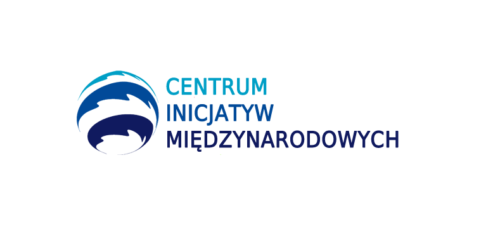MARTA MAKOWSKA
 Praised by the economists, astonishing international community with its political stability and continuality of the governance (not to mention successful confrontation with the arbitrary behaviour of the military), Turkey has become a bright light in the Islamic Tunnel for the West. Being just “next door” to the Arab Spring phenomenon, it is now desired to be the responsible actor (if not the leader) of the democratic transitions in the region. But can Turkey discharge its duties?
Praised by the economists, astonishing international community with its political stability and continuality of the governance (not to mention successful confrontation with the arbitrary behaviour of the military), Turkey has become a bright light in the Islamic Tunnel for the West. Being just “next door” to the Arab Spring phenomenon, it is now desired to be the responsible actor (if not the leader) of the democratic transitions in the region. But can Turkey discharge its duties?
Turkey under ruling party AKP (Justice and Development Party) may be perceived by its neighbours as a success story of Islam integrated into the democratic and prospering secular republic. However, one has to be very careful when speaking about the superiority of secularism without the proper context, especially in Egypt – a country currently governed by those, who struggled to overthrow condemned ‘secular’ authoritarian ruler. Nonetheless, Turkish Prime Minister, Mr. Recep Tayyip Erdogan, benefited both from the fondness of societies in different Arab states and aloofness of the West in providing them with enough support. In the annual survey “Arab Public Opinion Survey” conducted by S Brookings Institution in the late 2011 Turkey has been announced “the biggest winner of the Arab Spring”, which generally means, that in five countries where the survey had been taken (Egypt, Morocco, Jordan, Lebanon, and the United Arab Emirates), Turkey is believed to play the most constructive role during the Arab events and whoever the new leaders in those countries would be… it is postulated, that they should resemble Mr. Erdogan.
Turkey with all its modernity and secularism is very appreciated in non-Islamic part of the world, but it does not mean, that it can get the preferential treatment for its actions. Applying to join the European Union, Turkey has unsolved issues with acknowledging the Armenian Genocide (dating 1915) which has recently been the subject of major diplomatic clash with France. And this is just for starters. No more than 5 months from now the rotating presidency of the Council of the EU will be held by Cyprus – the country with whom Turkey does not have diplomatic relations at all.
To certain extent, these problems, although unsolved for too long time, are less disturbing that the ongoing violation of human rights which is reported regularly by international organizations specializing in the field. Turkey is by far the worst violator of human rights among the 47 signatory states of the European Convention on Human Rights. It is also the “leader” in the rate of detentions of its citizens for the “acts of terrorism” (almost one-third of overall number of 35 000 people prosecuted for such crime in the last decade came from Turkey). Nearly 9 000 complaints have been received by the European Human Rights Court against Turkey for violation of press freedom and freedom of expression in 2011. Among many ridiculous examples, one of them involving Orhan Pamuk, a Turkish writer and Nobel laureate, was a fine of nearly $3,670 for the statement in a Swiss newspaper where he admitted: “we have killed 30,000 Kurds and one million Armenians.” Internet does not prove to be any better: till now, more than 15,000 Web sites have been blocked by the state, according to engelliweb.com, which tracks restricted pages.
Law regulations leave dangerously large margin for the interpretation, therefore the risk of using legal methods for fighting political opponents is high. International organisations alert the public opinion about the misuse of anti-terrorism regulations against people, who express their support for Kurdish rights such as: teaching their language at school or facilitating their participation in the politics (today to secure the seat in the parliament, the party has to gain at least 10% of votes nationwide). However unimaginably it may sound, even wearing a keffiyeh (a traditional Arab headdress) may be an evidence which is sufficient for the judge to order a detention and put the suspect for months in the arrest while waiting for the trial (see: case of Cihan Kırmızıgül).
Turkey definitely has its modern and democratic attractiveness which seduces Arab world struggling for its freedoms. Yet, Mr. Erdogan should not diminish the significance of basic human rights while praising his government’s achievements in the economy and security fields. For the moment, he still remains the hero for the whole region, but with the change of the “Arab current”, he may find himself at the dead end. US and the European Union should also take the responsibility and refrain from turning a blind eye on basic rights violations in Turkey, as such approach would just reaffirm the pattern of internationals relations already established between the West and countries such as China or Russia.


[…] M. Makowska, Turkey: a democratic role model for the Arab Awakening Countries? […]
[…] M. Makowska, Turkey: a democratic role model for the Arab Awakening Countries? […]
[…] M. Makowska, Turkey: a democratic role model for the Arab Awakening Countries? […]
[…] M. Makowska, Turkey: a democratic role model for the Arab Awakening Countries? […]